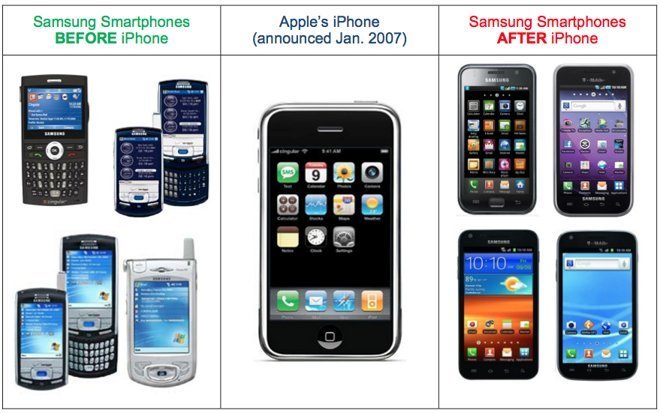A federal judge presiding over the Apple v. Samsung patent trial laid down the law this week, prohibiting either party from filing without permission after being inundated by a series of motions, objections and letters.
U.S. District Court Judge Lucy Koh on Thursday ordered Apple and Samsung to stop filing unless given express permission by the court. The ruling was issued shortly after Samsung filed an objection to an Apple proposal for partial final judgment lodged after the Federal Circuit denied Samsung's appeal of an order to pay out $399 million in damages.
Since Tuesday the court received five filings: Apple's letter proposing partial final judgment, a response from Samsung, a response to that response from Apple, a motion for judgment as a matter of law from Samsung and Thursday's objection, also from Samsung.
That last filing was apparently the proverbial straw that broke the camel's back.
"The Court has not yet received the mandate from the Federal Circuit Court of Appeals," Judge Koh wrote in her order. "Despite this, the parties have already filed a letter, two responses, an objection, and a motion. The parties shall not file any further motions, briefs, or letters with the Court until authorized by the Court."
For its part, Samsung argues Apple's initial letter was procedurally improper, noting that if the court took action it would violate federal rules, contradict a previous ruling and "work a manifest injustice" by enforcing an invalid patent. To that last point, Samsung is referring to a final decision invalidating Apple's "pinch-to-zoom" UI patent handed down by the Patent Trial and Appeal Board last December. Apple is currently seeking a rehearing and if the PTAB chooses to pass must file a Federal Circuit appeal.
Apple is also facing a non-final decision from the U.S. Patent and Trademark Office's Central Reexamination Division, which invalidated an iPhone design patent on multiple grounds.
This week's events come three years ago after the first Apple v. Samsung action ended in 2012 with a resounding win for Apple. Subsequent court actions reduced damages to $548 million, though both parties are contesting the sum. Samsung, for example, is petitioning the Supreme Court to hear its case relating to the recent CAFC denial.
 Mikey Campbell
Mikey Campbell







-m.jpg)






 Marko Zivkovic
Marko Zivkovic
 Christine McKee
Christine McKee
 Andrew Orr
Andrew Orr
 Andrew O'Hara
Andrew O'Hara
 William Gallagher
William Gallagher

 Mike Wuerthele
Mike Wuerthele
 Bon Adamson
Bon Adamson




-m.jpg)



41 Comments
Yeah, there’s absolutely no way that she has the right to do this, nor is there any excuse for her being the judge presiding over this thing for year after year. She needs to step aside from tech industry suits at this point; she has become weary of justice and is therefore emotionally compromised.
C'mon it's obvious they copied. You have to go through the motions for legal reasons, but enough is enough.
[quote name="ascii" url="/t/187922/judge-bars-apple-samsung-from-further-filings-after-rapid-fire-case-entries#post_2767685"]C'mon it's obvious they copied. You have to go through the motions for legal reasons, but enough is enough.
i think it is because all this being impartial and using logic is too hard.
Seems Samsung was the rapid fire party, not Apple. Apple filed two filings, Samsung four, two of them back to back. but of course, they have to punish Apple for Samsungs mistake. Koh just loves her homeland.